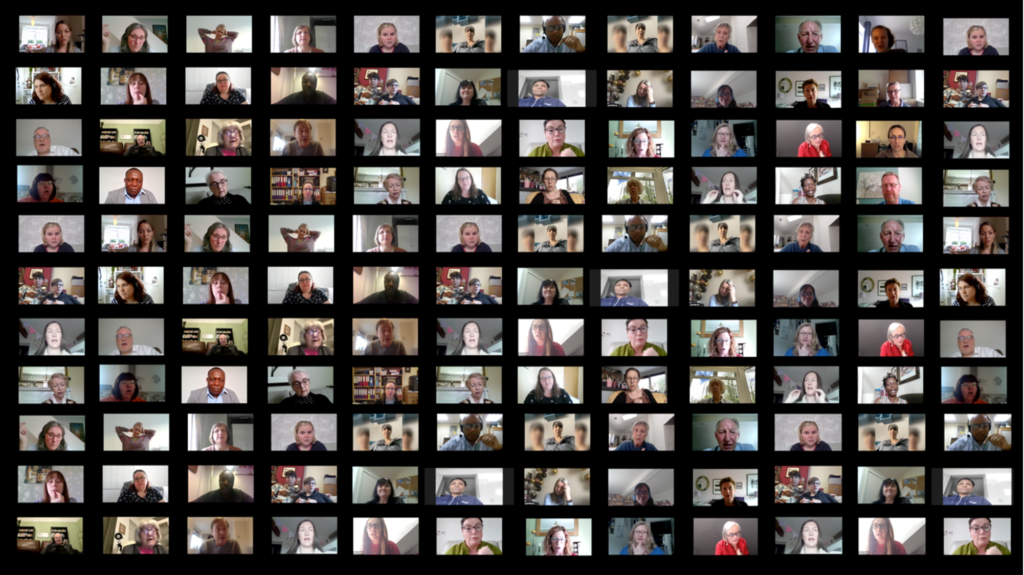Key findings on health and care funding
- Half of the people living in Britain (54%) don’t know if social care is free and one in five (20%) believe it’s free for all (it’s not)
- Four in five Brits (80%) feel that no-one should be financially worse off just because they need long-term care in old age
- The country is divided on whether people should pay for the cost of care in old age if they can afford it
- Most people (71%) see health and care services as underfunded
- Mental health treatment and support is viewed as the most underfunded part of health and care in the UK, followed by elderly care and hospitals.
We don’t even know if we’ll have to pay for care
In the Community Conversations, many people expressed surprise about the cost of care for an elderly family member. One person told us:
“I mean, when you look at the cost of putting them in a care home, you think, oh, my goodness, that’s huge. You break it down to an hourly rate. It’s hardly anything. Really. But at the time, you know, you think, well, 1,200 pounds a week, that’s an awful lot of money, or whatever it is these days.”
See more experiences
In the survey, we were curious to know whether people believe social care is free. So we asked them if social care support (such as help in the home, day centres and care homes) is free at the point of need for all residents. More than half (54%) don’t know and one in five (20%) believe it’s free for all residents. We also asked whether social care was free for some but not all. For comparison, we then asked the same questions about the NHS.
Social care isn’t free for most people. Most of those who need care in the UK have to contribute towards the cost of their care. The cost of care depends on the level of need, a person’s wealth and where in the country they live. Many support organisations provide guides to find out more, including Age UK’s guides for England, Scotland, Wales and Northern Ireland.
NHS services are generally free of charge. The aim is to ensure that treatment is based on clinical need, not an individual’s ability to pay. There are, however, a few exceptions that patients need to pay towards the cost of. In England, most people contribute to their prescriptions, dental care, eye care, wigs, fabric supports and dental care.
Divided views on individual responsibility to pay
There were several voices raised questioning who’s has to pay for care in the Community Conversations. One person said:
“I had two members of my family in the same care home. At the risk of sounding political, and this is not meant to, my uncle was getting everything for free. But my auntie was having to pay £800 a week. I personally struggled with that. They were, literally, in the same home where the care was the same for everybody.”
See more experiences
Four in five Brits (80%) feel that no-one should be financially worse off just because they need long-term care in old age, a view that’s held steady in recent years. But we’re divided on what this means in practice. Four in ten people (38%) think people should pay for the cost of care in old age if they can afford to do so, with three in ten people (31%) disagreeing. When asked a related question, three in ten (29%) support the view that individuals should make sure to prepare financially to pay for their care in old age (down from 35% support in 2018).
Use the arrows below to explore the responses to four questions about health and care funding over time.
Willingness to pay tax holds stable
In the Community Conversations, some felt taxes to be raised to tackle the shortage of NHS funds. One person said:
“About the free NHS – I really believe the country now needs quite a serious conversation about what that actually means. It’s not free, we all pay for it. And clearly, we need to pay more.“
See more experiences
Our surveys since 2018 don’t show any clear shift in people’s willingness to pay tax. If anything, a slight drop may have occurred. Back in 2018, 62% of people said they’d happily pay more to fund the NHS as long as they knew where their money was going, compared to 57% in 2021.
Use the arrows below to explore the responses to three questions on paying more tax over time.
Mental health support and elderly care seen as most in need of funds
In the Community Conversations, people were concerned about the lack of funds for specific services. One healthcare worker said:
“I’ve worked in various places for a long time, but spent twenty-five years in mental health. And over that time, some things have gotten a lot better. But the funding for the service has been cut so dramatically, that now there are people who are, in my opinion, over medicated to the point that they’re kind of flat, they don’t experience anything.”
See more experiences
Concerns are particularly high around the funding of mental healthcare and support and care for the elderly, with three quarters of people seeing these services as underfunded. Most people living in Britain (71%) believe there’s an overall funding shortage.
Use the arrows below to explore the responses to two questions about how well funded health and care are.
About this survey
Engage Britain has commissioned a nationally representative survey of 4,010 UK adults (18+).
The purpose of the survey is to explore how common experiences raised in the Community Conversations are and to explore views on health and care.
The survey was commissioned by Engage Britain and conducted by Yonder. Online fieldwork was undertaken 5-8 July 2021.
See the full results in the polling tables here.




